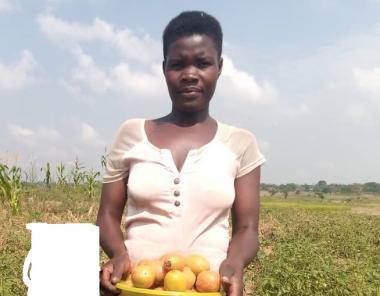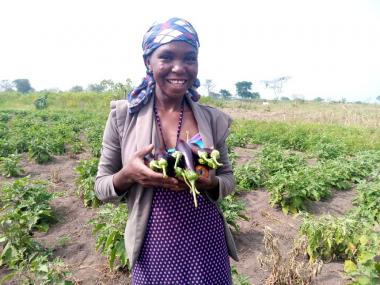AAIU renews the hope of Small Holder Farmers through Climate Resilient Agriculture practices.
A story of Change.
The outbreak of COVID-19 and resultant restrictions coupled with harsh climatic conditions further increased vulnerability of communities in Kibuku district. The COVID-19 induced lockdown and curfew restrictions limited people's access to their livelihoods and to basic services, amidst a potential desert locust invasion that had been anticipated in the region.
With support from Avaaz Foundation, AAIU in Pallisa district implemented a 3-month project working with women and young people in the informal sector and small businesses in peri-urban areas in 4 sub-counties. The work focused on money transfers, food and seed distribution to help women invest and recover from the effects of COVID-19 and desert
locusts.
Through the Local Rights Program, AAIU supported an umbrella organization for Small holder farmers, Kibuku Organic Farmers Association (KIDOFA) in response to the negative effects brought about by COVID-19 and the desert locusts invasion in the district.
In Sept 2020, ActionAid Uganda trained 46 of KIDOFA’s member groups (each with an average of 40 members) through the umbrella organization.
The groups were trained on Climate Resilient Sustainable Agriculture (CSRA) practices and supported with seed varieties such as egg plants and tomatoes. KIDOFA also supported by providing on-hands support to the farmers on use of soil and water management practices such as mulching, simple irrigation and use of organic manure.
Betty Nangobi and Aziza Mpindi are among the small holder farmers who have directly benefited from AAIU trainings and seed capital. They have used their acquired CRSA skills to produce food in the dry seasons.
The support enabled these women to be able to sustain their families with basic household needs.

“I never imagined I could do farming, even in a dry season. But the training I received from ActionAid has enabled me to harvest tomato plants even in this dry season of January. From the sales I make, I get to buy other household items like soap and salt for my family”- Betty Nangobi

We found Aziza in her garden with vegetable vendors who had come to buy eggplants from her.
“It’s the dry season and therefore there’s scarcity of food. I have been lucky that people now buy my eggplants from the garden and it saves me from having to look for the market.” - Aziza Mpindi.
Aziza adds saying that she earns an average of Ugx.30,000-Ugx.40,000 (USD8- USD11) per week from the sale of her eggplants.
AAIU is now working with KIDOFA to start a seed capital fund in which every farmer will contribute an
average amount of Ugx.10,000 (USD 3) towards the fund at every harvest season. The fund will then be
used to purchase good quality seeds and farm inputs in bulk at a cheaper cost and distributed to
farmers in the planting season.